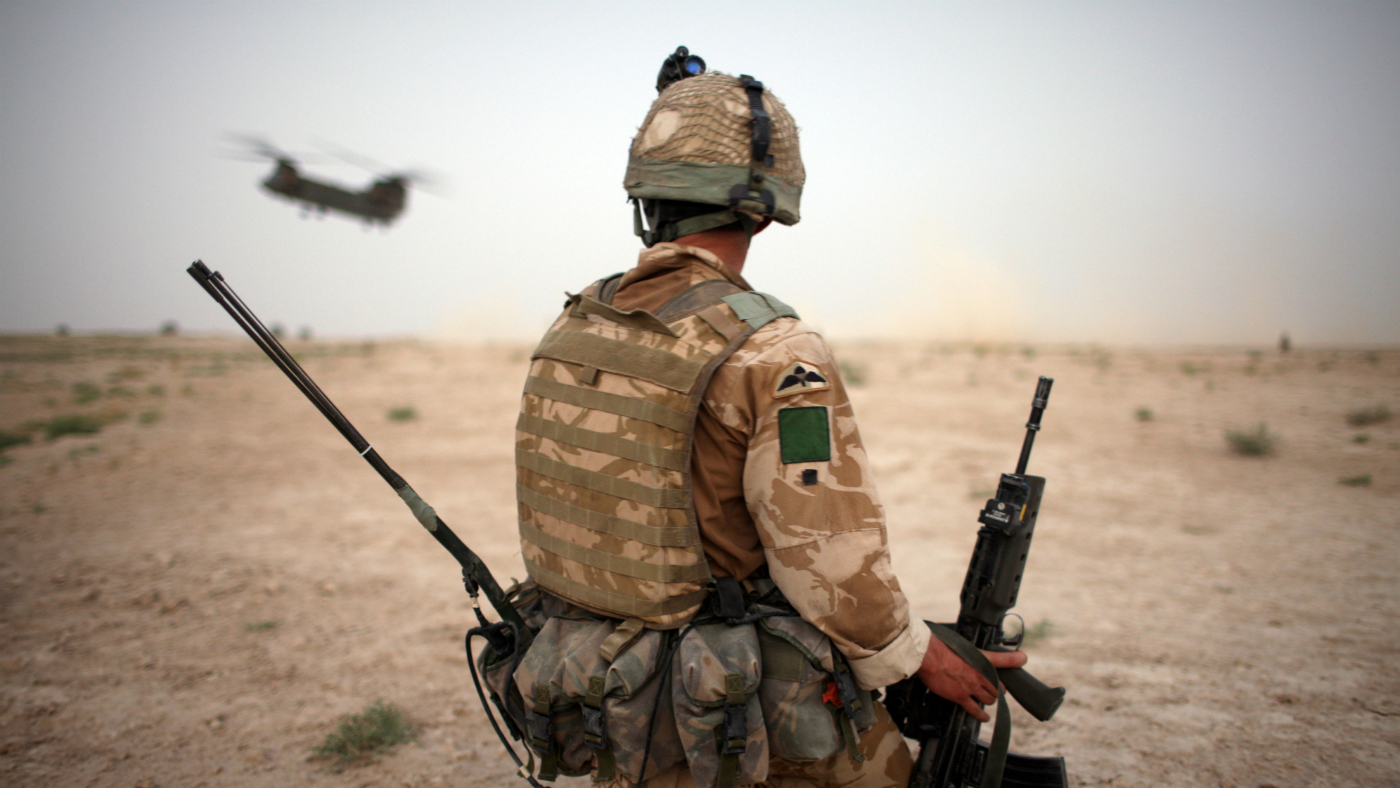Afghanistan resists offer to outsource Taliban war
President Ashraf Ghani dismisses plans laid out by private military contractor Blackwater

A free daily email with the biggest news stories of the day – and the best features from TheWeek.com
You are now subscribed
Your newsletter sign-up was successful
The government of Afghanistan has rejected proposals to privatise the war on terror in the country, following a “renewed push” by private military contractor Blackwater.
The company’s founder, Erik Prince, has been lobbying officials for more than a year about his plan for Blackwater’s own private air force and ground troops to take over parts of existing US military operations in Afghanistan, Reuters reports.
In an interview with NBC News in August, Prince said his firm would send over around 6,000 private military contractors as reinforcements for 2,000 US Special Forces, a move that would see US and Nato forces largely withdrawn from the region.
The Week
Escape your echo chamber. Get the facts behind the news, plus analysis from multiple perspectives.

Sign up for The Week's Free Newsletters
From our morning news briefing to a weekly Good News Newsletter, get the best of The Week delivered directly to your inbox.
From our morning news briefing to a weekly Good News Newsletter, get the best of The Week delivered directly to your inbox.
The 49-year old former US Navy Seal told a briefing in London that he could reduce the cost of America’s policy in Afghanistan from $52bn annually to just over $10bn, says The National.
However, Afghan president Ashraf Ghani - who is standing for re-election in April - has “reacted angrily” to suggestions that the war should be privatised, threatening “all legal options” against anyone who made attempts to do so.
On Thursday, Ghani’s national security adviser issued a statement criticising Prince for evoking what Afghan officials called a “destructive and divisive debate”.
“Under no circumstances will the Afghan government and people allow the counterterrorism fight to become a private, for-profit business,” the statement said. “As a sovereign nation, we will consider all legal options against those who try to privatise war on our land.”
A free daily email with the biggest news stories of the day – and the best features from TheWeek.com
However, an unnamed Afghan source told The Washington Post that Prince’s charm offensive was making headway in Kabul, where he is perceived as having the ear of the White House.
“He’s winning Afghans over with the assumption that he’s close to Trump,” the source said, adding that many of Prince’s ideas “feed into frustration with and within the Afghan military, particularly given its high casualty rate”.
Defending his plan, Prince said: “I would say six months after the programme is fully ramped up, you [would] have a very different situation on the ground, I will commit to that.”
But officials from the US military have also expressed concerns about Prince’s proposal.
General Joseph Votel, chief of US Central Command, said on Thursday that it would not be a good strategy to turn over US national interest to contractors, Afghan news channel Tolo News reports.
“We have vital interests here and we are pursuing them with legitimate forces that can do that,” Votel said during a Pentagon news briefing.
“Even broader than that, the bilateral security agreement that I think is in place with Afghanistan does not allow this. The Afghans don’t want this.”
-
 Nordic combined: the Winter Olympics sport that bars women
Nordic combined: the Winter Olympics sport that bars womenIn The Spotlight Female athletes excluded from participation in demanding double-discipline events at Milano-Cortina
-
 Samurai: a ‘blockbuster’ display of Japanese heritage
Samurai: a ‘blockbuster’ display of Japanese heritageThe Week Recommends British Museum show offers a ‘scintillating journey’ through ‘a world of gore, power and artistic beauty’
-
 BMW iX3: a ‘revolution’ for the German car brand
BMW iX3: a ‘revolution’ for the German car brandThe Week Recommends The electric SUV promises a ‘great balance between ride comfort and driving fun’
-
 Taiwan eyes Iron Dome-like defence against China
Taiwan eyes Iron Dome-like defence against ChinaUnder the Radar President announces historic increase in defence spending as Chinese aggression towards autonomous island escalates
-
 The mission to demine Ukraine
The mission to demine UkraineThe Explainer An estimated quarter of the nation – an area the size of England – is contaminated with landmines and unexploded shells from the war
-
 Operation Rubific: the government's secret Afghan relocation scheme
Operation Rubific: the government's secret Afghan relocation schemeThe Explainer Massive data leak a 'national embarrassment' that has ended up costing taxpayer billions
-
 How will the MoD's new cyber command unit work?
How will the MoD's new cyber command unit work?Today's Big Question Defence secretary outlines plans to combat 'intensifying' threat of cyberattacks from hostile states such as Russia
-
 What are the different types of nuclear weapons?
What are the different types of nuclear weapons?The Explainer Speculation mounts that post-war taboo on nuclear weapons could soon be shattered by use of 'battlefield' missiles
-
 Is the 'coalition of the willing' going to work?
Is the 'coalition of the willing' going to work?Today's Big Question PM's proposal for UK/French-led peacekeeping force in Ukraine provokes 'hostility' in Moscow and 'derision' in Washington
-
 Is Gaza ceasefire deal about to fizzle out?
Is Gaza ceasefire deal about to fizzle out?Today's Big Question Israel and Hamas accuse each other of deliberately breaking first phase of the fragile truce, which is set to expire on Saturday
-
 Would Gen Z fight for 'racist' Britain?
Would Gen Z fight for 'racist' Britain?Today's Big Question Only 11% of people aged 18-27 say they would fight for UK, survey by The Times reveals, amid low levels of pride and 'declines in confidence in institutions'